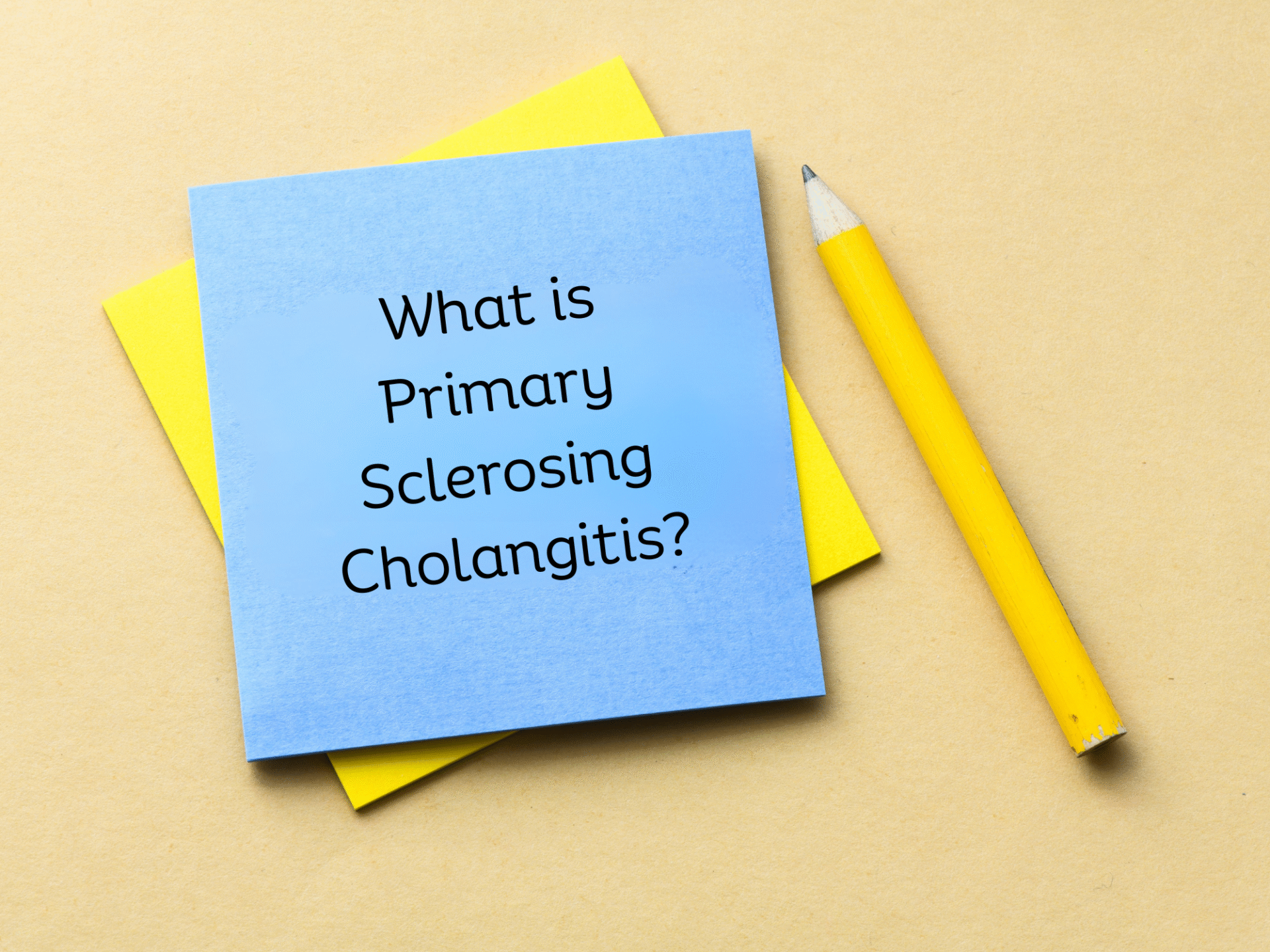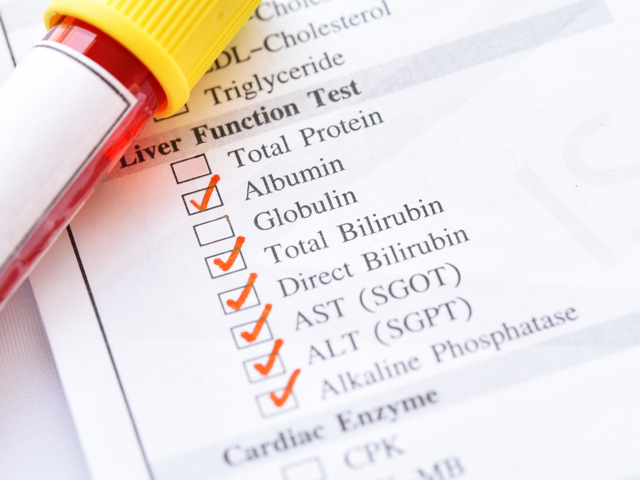Learning about primary sclerosing cholangitis (PSC) can be challenging, especially if you’ve recently been diagnosed or are suspected of having PSC. There is a lot of information about PSC online which is outdated or misleading. PSC Partners Canada makes resources available to answer questions for those who are newly diagnosed. Here is a helpful list of questions that are commonly asked when a person is first diagnosed.
What is PSC?
PSC is a rare form of liver disease in which the bile ducts inside and outside of the liver become damaged. Bile ducts are small tubes that carry bile from the liver and gallbladder to the small intestine to help digest fat. With PSC, the bile ducts get inflamed and this inflammation leads to narrowing and then scarring of the affected ducts. As PSC progresses, blockages of the bile ducts may occur. As a result, bile gets trapped in the liver and causes damage that can result in fibrosis and cirrhosis, eventually leading to liver failure. Patients with PSC may require a liver transplant as cirrhosis progresses.
What are the symptoms of PSC?
While there are common symptoms of PSC, each person with PSC may experience different types of symptoms at varying levels of severity. Some people with PSC have no symptoms at all. Some of the more common symptoms include:
- Itching (called pruritus): an intense feeling of itchiness can appear anywhere on the body, although it’s common to feel this in the palms of the hand or soles of the feet.
- Fatigue: the feeling of being tired all the time, despite additional rest or more sleep.
- Jaundice: Experiencing yellowing of eyes and skin, including dark urine. This is caused by increased levels of bilirubin in the blood, which can occur when the normal removal of bilirubin from the liver through bile is blocked because of scarred bile ducts.
- Pain: Doctors often refer to pain associated with PSC as right upper-quadrant (RUQ) pain. This is usually felt in the rib cage, towards the right or middle of the abdomen. The pain may extend to other areas in the upper or lower back, varying in intensity and duration.
What causes PSC?
While there is no known cause for PSC, researchers believe the cause lies within a mix of genetic, autoimmune and environmental origins. Research is ongoing to help understand the disease and how it progresses. PSC is not caused by alcohol consumption.
Who tends to get PSC (risk factors)?
PSC may be diagnosed in any person at any age. Some demographics of those affected by PSC are:
- It’s estimated 5-16 out of 100,000 people worldwide have PSC. With Canada’s population of approximately 40M, that estimate would mean there are somewhere between 2,000 and 6,400 people in Canada with PSC.
- Males tend to get PSC at approximately twice the rate of females.
- Most people with PSC (about 7 out of 10) also have inflammatory bowel disease (IBD), with ulcerative colitis being the most common form.
- Many people are diagnosed between the ages of 30-40, although PSC can occur at any age.
Is PSC contagious or hereditary?
PSC is not a contagious disease and cannot be transmitted person-to-person through activities such as touching, kissing, sexual activity, or through procedures such as blood transfusions. While researchers are still investigating the causes of PSC, there may be a genetic predisposition to PSC in some people. Most children born to people with PSC are healthy.
How long does it take for PSC to progress?
PSC progresses differently in every person. Some people may develop symptoms and complications over a matter of months while others go without any symptoms at all for many years after diagnosis. It’s important to see your doctor at regular intervals (usually every 3-9 months) to monitor progress of the disease. In 2013, a population-based study in the Netherlands estimated that the median survival was 21.3 years from diagnosis until liver transplant or a PSC-related loss of life.
What are common complications of PSC?
There are certain complications of PSC that arise as the bile ducts become scarred and blocked. These complications may include:
- Bile duct infection (often referred to as bacterial cholangitis): as bile has difficulty flowing through narrowing or blocked bile ducts, bacterial infections can occur. These are often treated with antibiotics.
- Cirrhosis: when scar tissue replaces healthy liver tissue.
- Portal hypertension: when the normal flow of blood is slowed by the buildup of scar tissue in the liver. This results in high blood pressure in the portal vein (which is the large blood vessel that carries blood from your stomach, intestines, spleen, gallbladder, and pancreas to the liver).
- Ascites: the buildup of fluid in the abdomen.
- Varices: enlarged veins which can occur in the stomach, esophagus, or intestines, and can lead to internal bleeding if the veins burst.
- Hepatic encephalopathy: toxins that are unable to get filtered by the liver may build up in the blood and can result in confusion, difficulty thinking clearly, or concentrating.
- Liver failure: Cirrhosis may eventually lead to liver failure (end-stage liver disease) and at that point a transplant may be required.
- Cancer: PSC patients are at an increased risk of certain types of cancer, in particular cholangiocarcinoma (bile duct cancer), colorectal cancer (as the risk increases in patients with both PSC and IBD), as well as gallbladder cancer and liver cancer.
Why is it important to see a hepatologist — and not just any GI specialist?
If you’ve been newly diagnosed with PSC, one of the most important next steps is to be referred to a hepatologist, ideally someone with experience in autoimmune liver diseases like PSC. Not all gastroenterologists or hepatologists are equally familiar with the complexities of PSC or have enough PSC patients to stay up to date with clinical trials and new information. Don’t be afraid to ask your specialist how many PSC patients they see regularly. Having the right support early on can help you feel more informed and better equipped to manage your care.
It’s not uncommon to feel overwhelmed after receiving a PSC diagnosis, as there is a lot of new information to process and understand. Be sure to check out some of the other resources available from PSC Partners Canada to learn more about PSC or to find support.


















